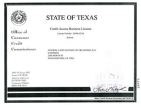Important Financial Tips
Just as a person's physical body can always be healthier than it currently is, so can a person's finances become healthier than they currently are. By following various key financial tips, you can get your financial matters in better shape—and, often, more quickly than you thought possible!
Start Saving
“I don't make enough money to save” is a poor mantra and one you should discard immediately. Even if you aren't pulling in a huge income, it's important to find ways to save. The sooner you start saving, the more interest you'll be earning on that tucked-away money and the better shape you'll be in for rainy days and retirement.
Separate Your Accounts
As you start saving, it's crucial that you have separate checking and savings accounts. If you put saved money in your checking account, you'll spend it. It's that simple. Open a separate savings account and put that extra cash out of sight and out of mind so it can stay put and earn interest.
Use a Budget
It's almost shocking how many people don't budget their money but, instead, just spend willy-nilly and then use credit cards to make up the difference when they run short of funds. It's absolutely essential to create a budget and follow it. Know what your income is, know what your bills are and when they are due, plan out your expenses, and be disciplined in sticking to your budget. Tip: The surest way to fail at budgeting is by setting unrealistic limits and depriving yourself (kind of like going on an uber-strict diet that only allows you to eat carrots and drink distilled water). Allocate about 30 percent of your income to lifestyle expenses—unnecessary creature comforts like eating out and going to the movies; that way, you won't enter the deprive-then-binge cycle, which is a sure pathway to failure, but you'll be enjoying your money and consciously saving at the same time. Set aside another 20 percent of your income for important financial priorities, like paying off debt or beefing up your emergency savings.
Give Yourself a Boost
If you have serious financial problems you need to wade out of, like significant debt or overdue bills, putting a lump sum of cash toward paying off a debt or delinquent bill can help give you a jump-start on your path to financial freedom. Businesses like CashMax offer cash for gold and gift card trade-in options, enabling you to exchange items lying around your house for cash in hand and put the money toward a debt or outstanding bill. A good rule of thumb: When you're tackling debts, pay off the smallest one first. Once that smallest debt is paid in full, take its monthly payment amount and apply it to your next-smallest debt. For example, if you used to pay $50 per month toward charges on a Visa card but have since paid off the card, don't absorb that $50 back into your spending pool; instead, add it to the monthly amount you're paying for your next-smallest debt, and so on until they're all paid off.
